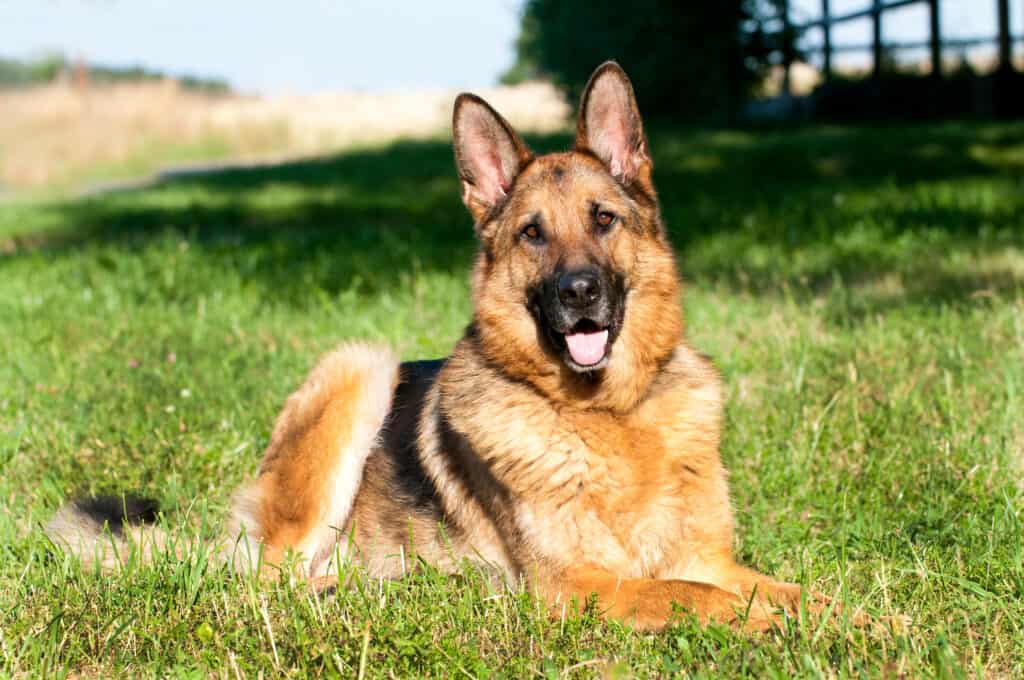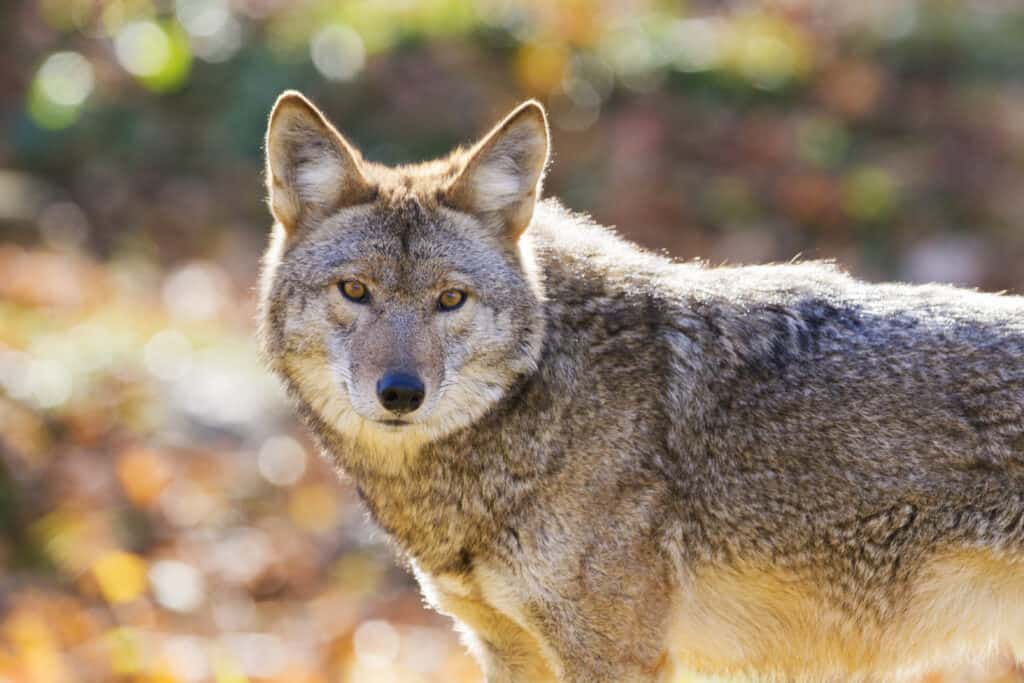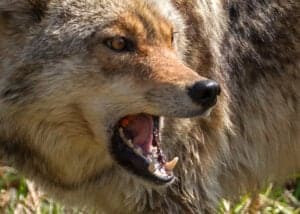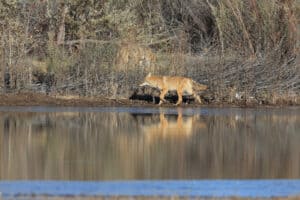This is a true dog fight and shows how fierce our canine friends can be when they need to be. It is a battle between a German Shepherd dog and another dog against a number of coyotes. They chase each other back and forth and there is a lot of growling and snarling. Neither side is willing to concede defeat. The big difference is that the domestic dogs are being told what to do by their human companion.
Watch the Heart-Stopping Video Below!
Just as the coyotes seem to be retreating, the German Shepherd is ordered to “Get them” by the handler. The brave dog manages to catch one of the coyotes and seems to fatally injure it. The others come back to try to help but it is too late.
The German Shepherd Breed
German Shepherds are regularly in the top five most popular pet dogs in the US. They are large, agile, and muscular dogs and are also one of the most intelligent of all dog breeds. German Shepherds can grow to 90 pounds and live for seven to 10 years. They are loyal, courageous, and confident and are willing to risk their own lives to perform their duty. This is why they may be such good service dogs but they can also be wonderful family pets.

German Shepherds are loyal, courageous, and confident dogs
©Dora Zett/Shutterstock.com
On the downside, they are very heavy shedders and will need brushing several times a week. Also, they can become destructive if they do not get enough physical and mental stimulation.
Coyotes In The Wild

Coyotes are pack animals that often prey on smaller dogs.
©Mircea Costina/Shutterstock.com
Coyotes look very like wolves and are sometimes called prairie wolves. They are native to Central and North America and live in forests, plains, and desert habitats. They grow up to around 50 pounds making them smaller than many German Shepherds.
Coyotes are pack animals and in this video, you can see the other pack members returning to try to help their injured (possibly even deceased) pack mate.
The social arrangements in a pack are not fixed. They like to remain in pairs or family units and there is a dominant hierarchy but they are also comfortable hunting alone. The pack provides protection and the possibility of hunting larger prey that a single coyote could not manage alone. The only downside is that this prey has to feed more coyotes! Sadly, being a part of a pack did not help here.
The photo featured at the top of this post is © iStock.com/GatorDawg
Thank you for reading! Have some feedback for us? Contact the AZ Animals editorial team.





